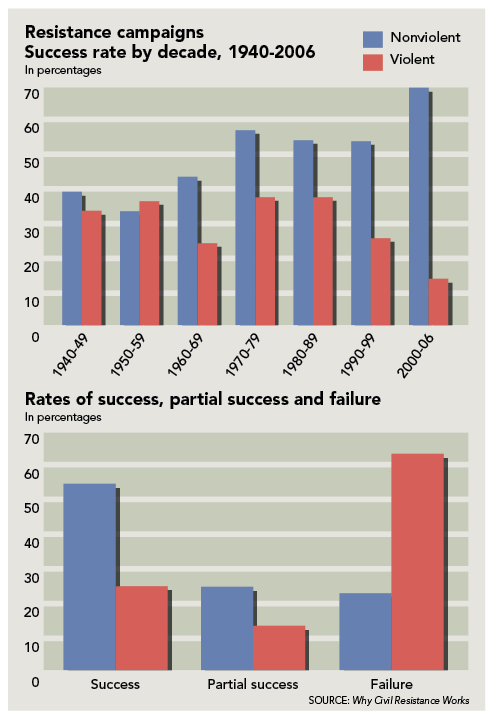Second, even though I don't think arguing pragmatism and ends is the right course for discussion, since it is the focal point of the anti-pacifistic argument, I think it's worthwhile to undermine the smugness that anti-pacifists seem to have when they offer scenarios like ISIS or Nazi Germany, saying that violence obviously produces better results. If Hauerwas's article and all of the other rebuttals I provide aren't enough to convince you, I think the following clip from the movie "The Kingdom" provides a fantastic look into what violence is more likely to breed than justice and peace.
To set up the scene, an American unit was retaliating to an injustice that occurred to innocent lives. They wanted justice and vengeance. They hunt down the guy who was responsible for the injustice and kill him. The man leaves a family behind who sees their beloved's death as an injustice, and in turn, vows to get justice through violence. Now we could argue that the Americans were right in killing this "terrorist," but the end of the movie leaves us in recognition that violence is a never ending cycle. So the "terrorist" killed some who we think are "innocent" people. But I wonder what injustice may have motivated the terrorist to view these individuals as culpable and worthy of death - worthy of what he viewed as justice. On the surface, violence may prevent imminent violence. Violence may even end up preventing the loss of a great number of lives. But Christians are commanded to love. We're not commanded to use violence because violence tends to beget more violence. The use of violence comes with a high probability of ultimately solving nothing. The use of love and patience in awaiting God's vengeance comes with a high probability of suffering, but it comes with a promise that this will put us in the company of our savior, and that God will use such foolish means to show the world his Kingdom come and accomplish his purposes.
Scholarly research indicates that non-violence has proven itself more effective at exacting meaningful change (see also "Why Civil Resistance Works").
The ultimate weakness of violence is that it is a descending spiral, begetting the very thing it seeks to destroy. Instead of diminishing evil, it multiplies it. Through violence you may murder the liar, but you cannot murder the lie, nor establish the truth. Through violence you may murder the hater, but you do not murder hate. In fact, violence merely increases hate. So it goes. Returning violence for violence multiplies violence, adding deeper darkness to a night already devoid of stars. Darkness cannot drive out darkness: only light can do that. Hate cannot drive out hate: only love can do that.




 RSS Feed
RSS Feed